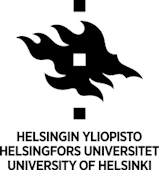I am a Marie Curie Research Fellow at the University of Helsinki, working on genetics, genomics, population and statistical genetics. I am currently working on the genetics of adaptation to natural selection using the ninespine stickleback as a model organism, with the Ecological Genetics Research Unit led by Prof Juha Merilä.
I originally studied Natural Sciences at Bologna University (Italy) and then did a PhD in population and quantitative genetics at UCL (UK) with Linda Partridge. During my PhD I got interested in statistics and started using R for data analysis and programming. Because of this interest I then moved to statistical genetics research at Imperial College in order to increase my background in statistics. I have been working in statistical genetics and genomics for the last 8 years, including in the statistical genetics group led by David Balding, who is now at UCL.
At Imperial College my core research has been in the field of complex trait mapping, such as type I diabetes, atopic dermatitis and animal behaviour in genetic association studies. I have been using the latest statistical software and I have written code implementing new statistical methods to analyse genetic data ranging from candidate SNP datasets to whole genome scan datasets of up to 1.5 millions SNPs strong. My most recent work of this kind, in collaboration with Dr Lachlan Coin of the University of Queensland, is the creation of a R library called “MultiPhen”, which allows to test for pleiotropic genetic effects.
Alongside my genetic association research, I have worked on the analysis of complex pedigree records, using simulations to asses pedigree complexity, inbreeding and gene diversity loss in dogs. My work on the analysis of the pedigree of purebred dogs in the UK has been key in the recent challenges to the practice of closed registries for dog breeds, on the grounds of animal welfare.
In addition to this work I am also interested in using Next Generation Sequencing techniques for conservation and management of endangered species and populations.
- Article Feed
- Joined


